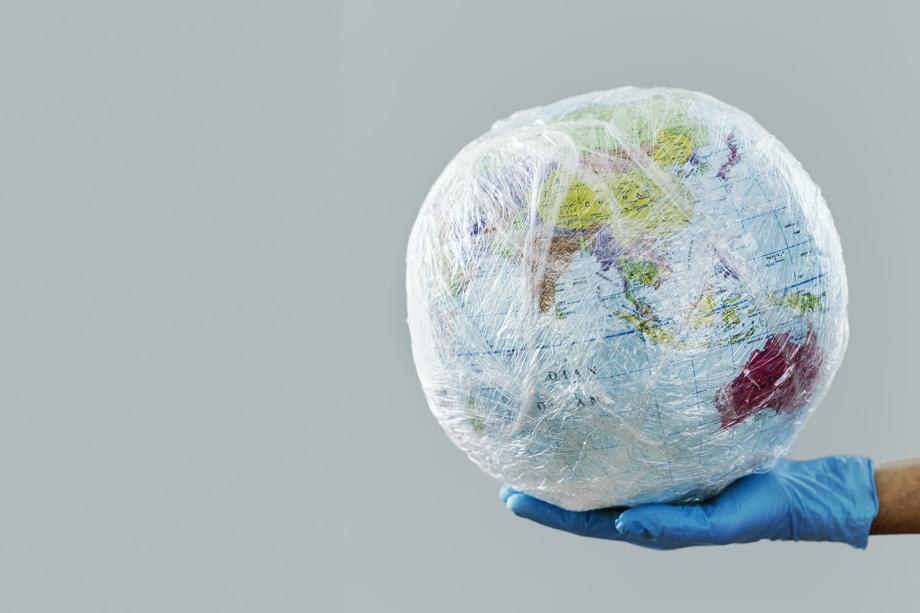Future climate crisis might hit us as hard as the coronavirus

In these uncertain 2019-nCoV times, I don’t think about buying tree-free and recycled toilet paper anymore. Nowadays, my well-being is more important than thoughts dedicated to saving the environment. My rationale being is selfish and my health is more important to me than a sustainable lifestyle. But isn’t my well-being, my health and safety interchangeably linked to the climate?
COVID-19 crisis and climate crisis
The European Space Agency released images of their Copernicus Sentinel-5P satellite showing the decline of nitrogen dioxide emissions over Italy between January and March 2020. In detail, the nitrogen dioxide emission reduction is particularly visible in Northern Italy. This occurrence coincided with the nationwide lockdown imposed by the Italian government to prevent the spread of the coronavirus. The US-National Aeronautics and Space Administration published satellite images showing a decline of nitrogen dioxide emissions over Chinese cities between January and February this year. The nitrogen dioxide emission clouds, emitted by vehicles, power plants and industrial facilities, have vanished from the geospatial images. It can be said that this deadly virus has had a positive impact on climate change and greenhouse gas emission reduction.
Emissions in Northern Italy and China are down because the fossil-fueled economy has stopped, and people cannot go to work. This is, however, not an analogy to the decrease of emissions in order to tackle climate change. The fight against climate change should not take lives. It should improve and advance them.
Nevertheless, the COVID-2019 impact on economic activity implies that there urgently needs to emerge a discussion regarding responsible and social business habits and the reshaping of supply chains to mitigate environmental pollutions and the spread of diseases. Companies will have to develop concepts to reduce their exposure to potential pandemics and strategies to mitigate the adverse effects of climate change. This spread of the virus, that has led to a pandemic and economic crash, could easily swallow up the money and eat up the political will that should be used to fund and support the climate change efforts. The re-ignition of the economy can also be seen as an opportunity to boost investment in renewable energy systems and in sustainability efforts.
I understand that immediate actions taken during the COVID-19 crisis will produce benefits and gains in a short space of time. On the other hand, immediate actions taken to tackle the climate crisis will bring benefits and gains in the distant future. Its worst effects will occur in the future, not here and now. But it is in my human nature to take care of the here and how. Still, I should not forget to think about my actions that will influence the future of the climate. One of the differences between the virus crisis and the climate crisis is that the response to the COVID-19 crisis is an act of sovereignty and the response to the climate crisis demands collective action. The COVID-19 crisis shows that we lack resilience and don’t work together to fight the pandemic. The fight against climate change, on the other hand, demands a resilient network and robust cooperation to master global warming. Certainly, there is room for improvement to build up resilience and cooperation for the COVID-19 crisis and the climate crisis.
Does the COVID-19 crisis trigger a sustainable behavioural change?
I have hope that the character of the virus may trigger behavioural change for the better. Maybe it will trigger a sustainable behavioural change. These days, I am prone to using my car less than usual, and I don’t buy canned fizzy drinks or plastic bottles of water. I don’t assume that this behavioural change will save the climate but if I stick to this behaviour after the COVID-19 crisis is over, it is a small contribution to convince big players to stick to the behaviour they adapted during the coronavirus curfew. It might be naive to think a behavioural change, that comes out of an economic slowdown due to a virus outbreak, will substantially change my behavioural. Many people’s existence and survival are dependent on well-functioning business activity. A sustainable behavioural change is not something that is born out of a crisis. It is something that requires deliberate action, committed motivation and willingness. However, the new viral infection has its own rhythm of behaviour and it remains to be seen whether our behaviour changes or not.
Although I can feel that the fight against climate change and efforts to live a sustainable life is now falling into oblivion, it is still time for a change. These times show us that this change is possible, but it needs to be governed by our free will and not forced upon us by an unknown virus.
While opening my laptop to write this article, I looked outside and was very smug and self-satisfied about seeing the Christmas Eve-like stillness of empty roads. Maybe this crisis will teach us a lesson or two and we will finally slow down.

Former Programme Manager & Research Fellow, Sustainability